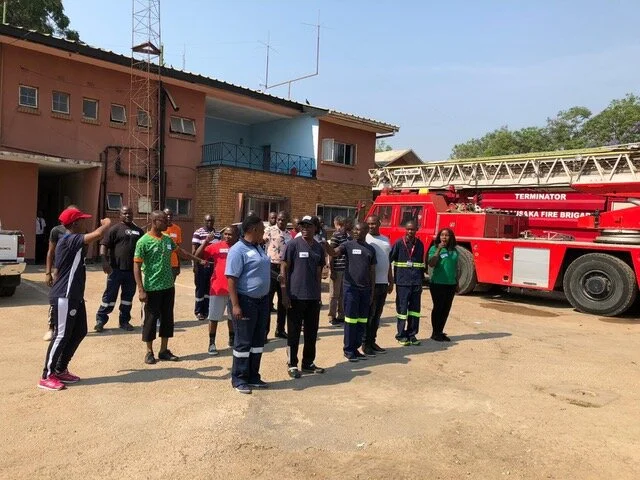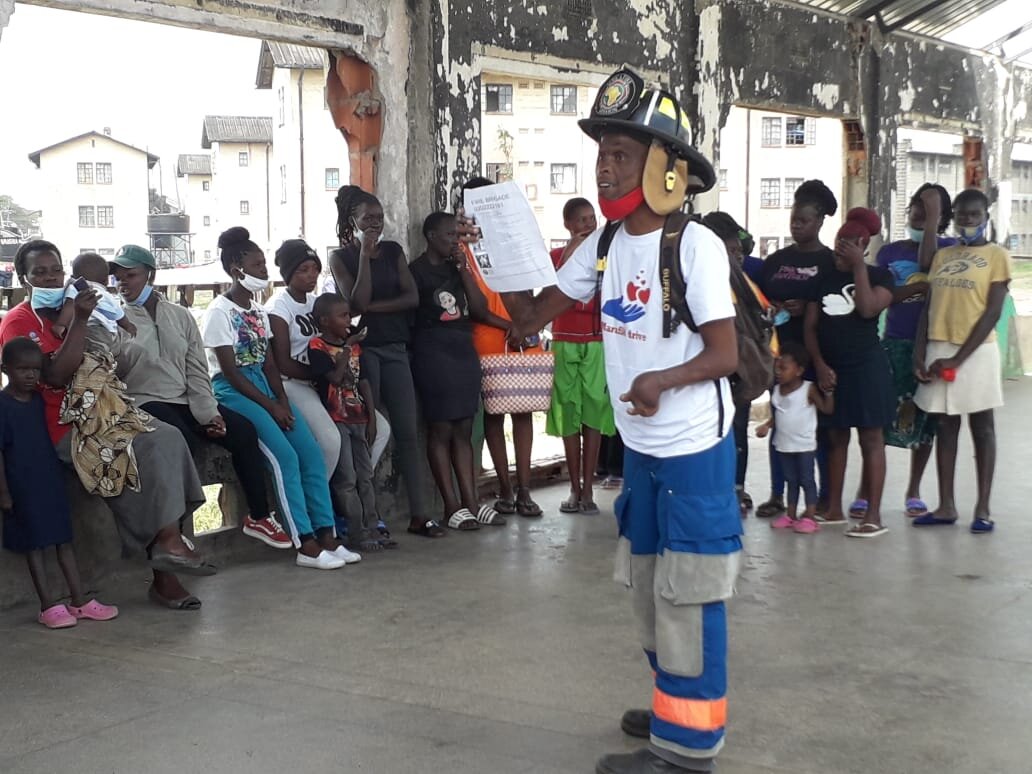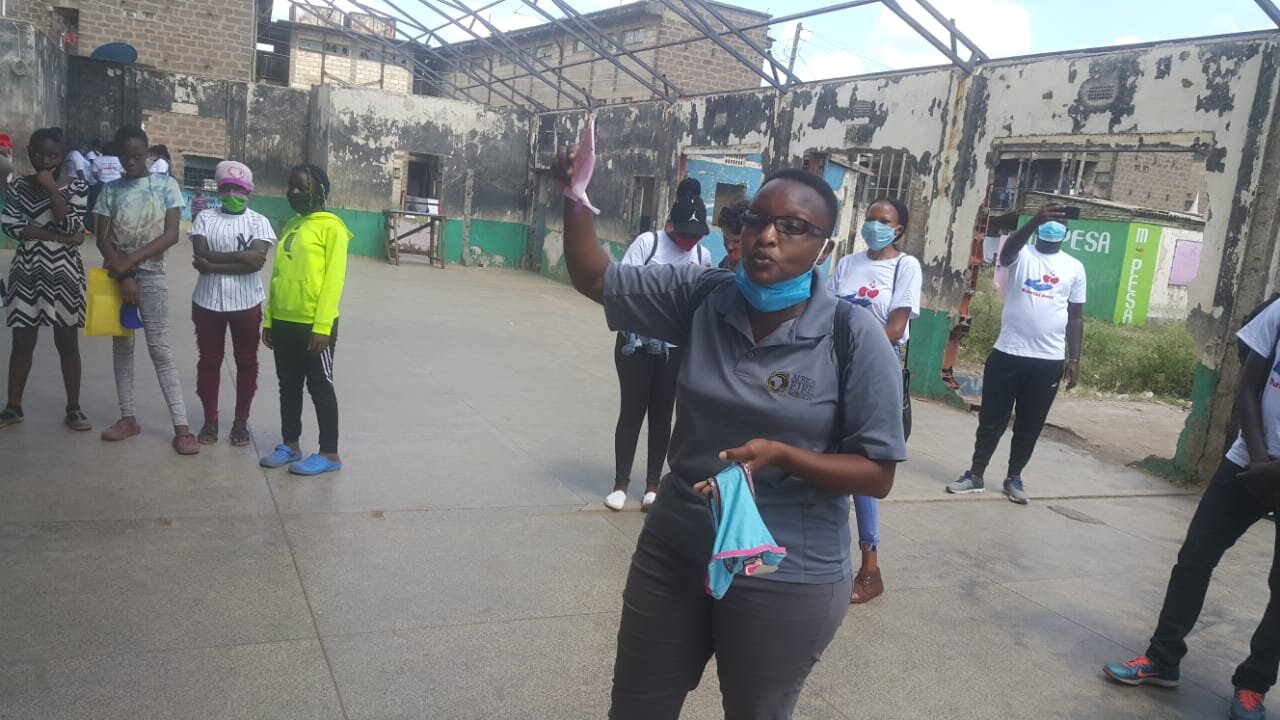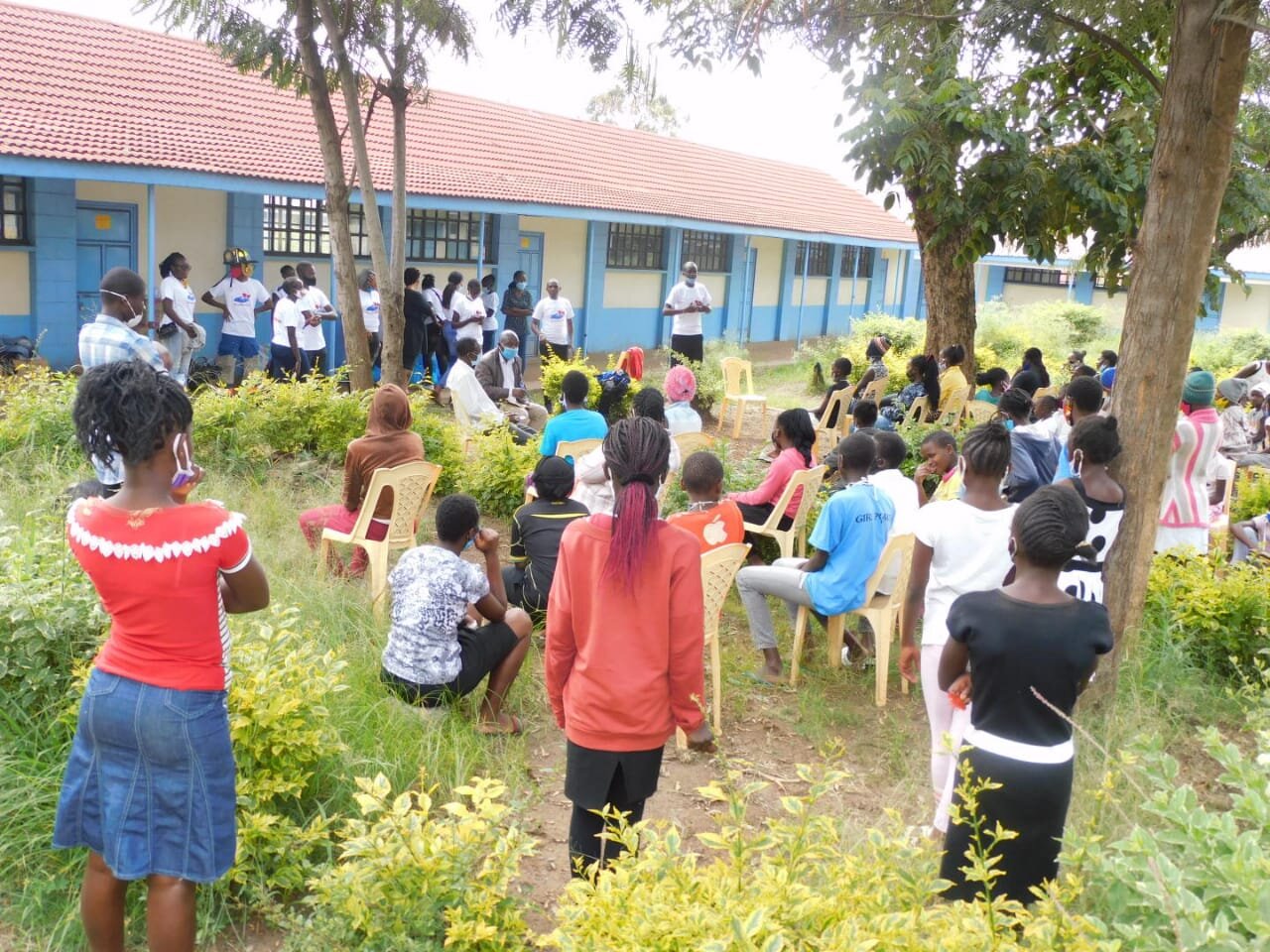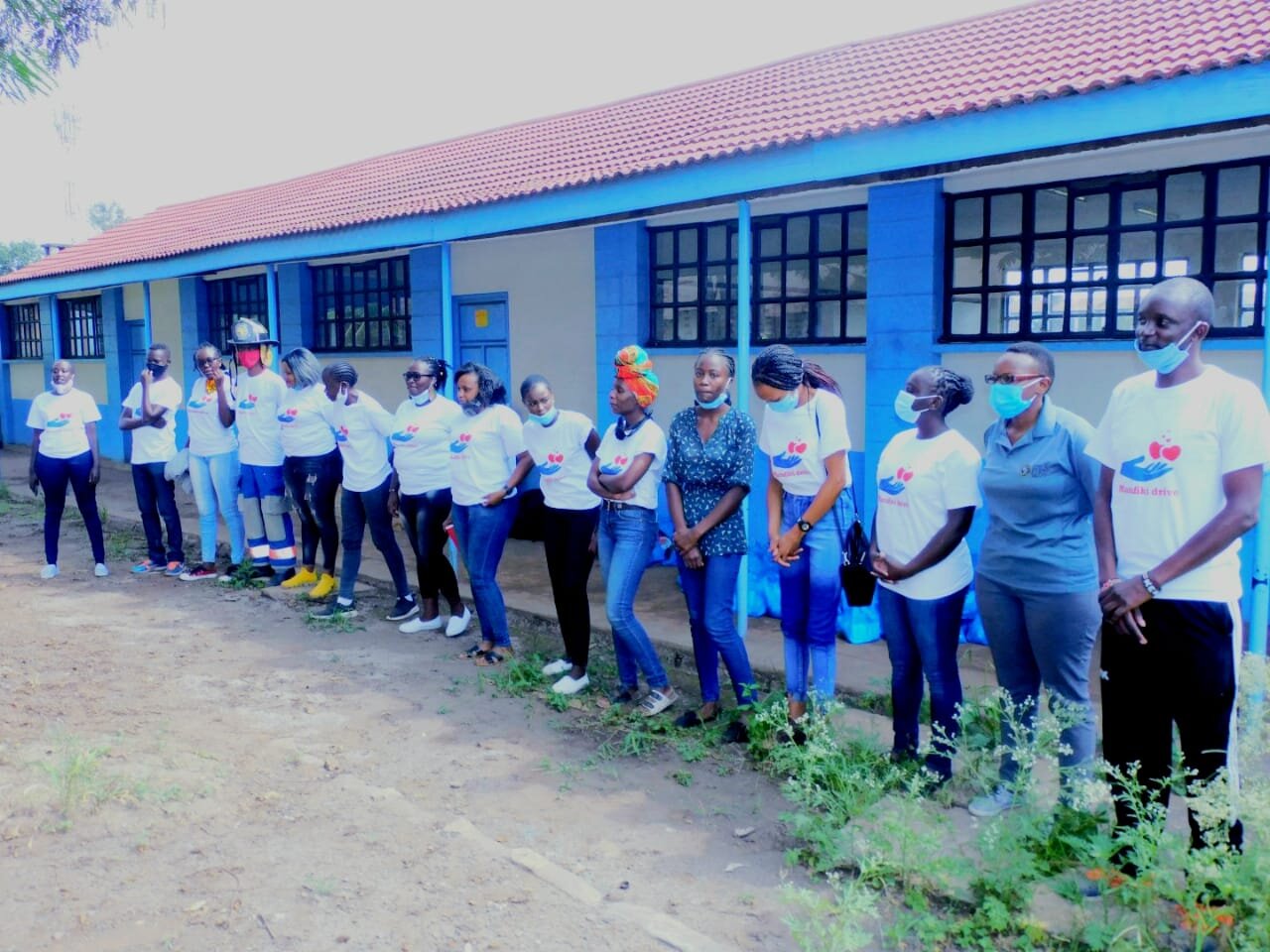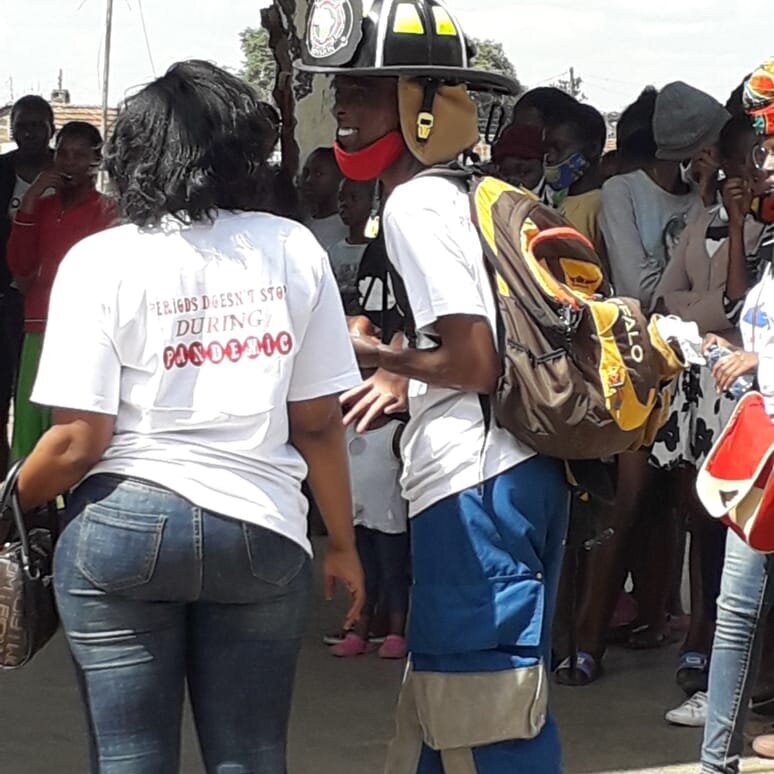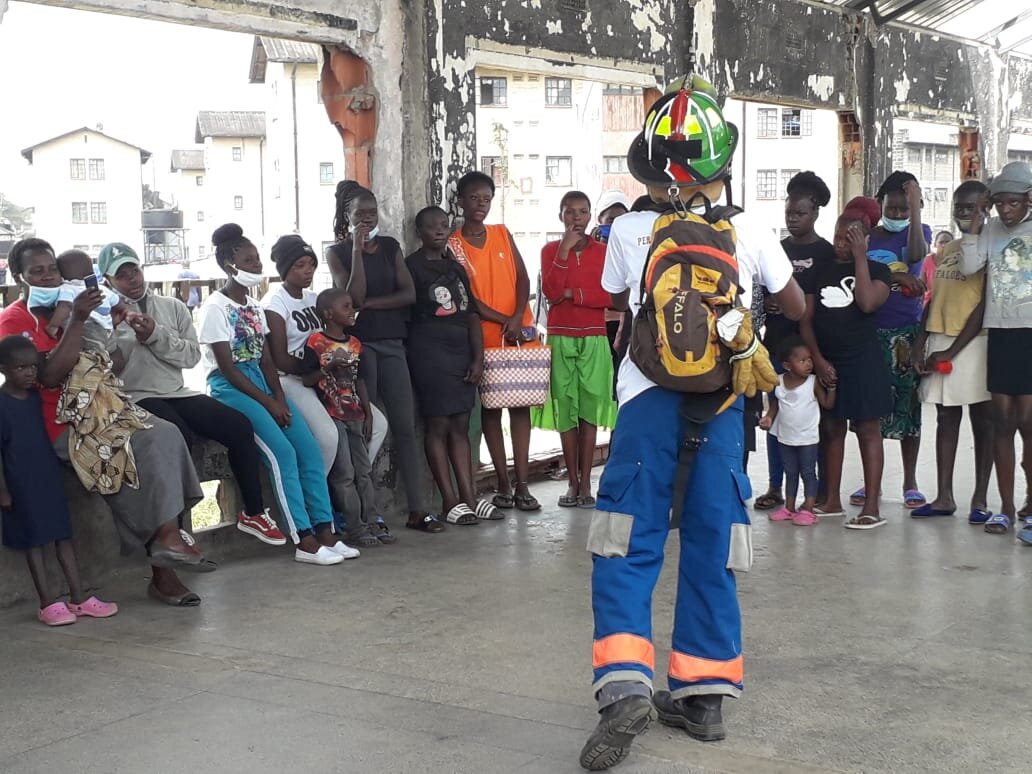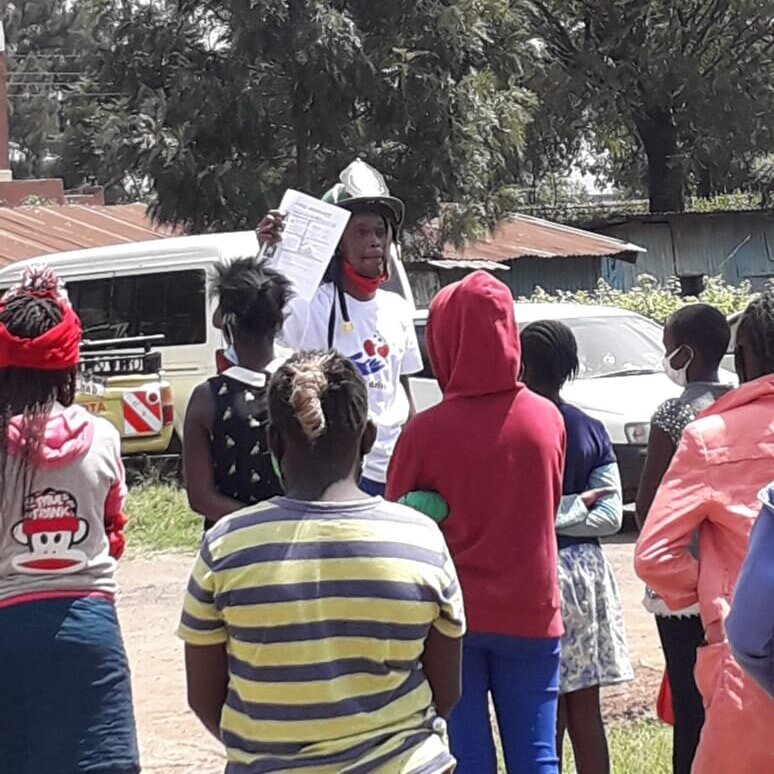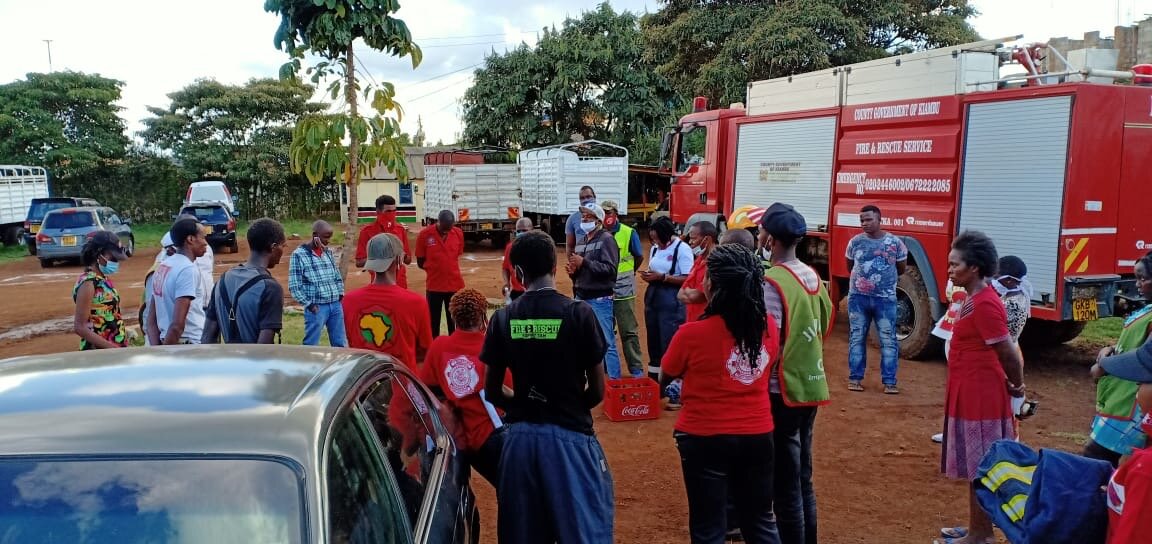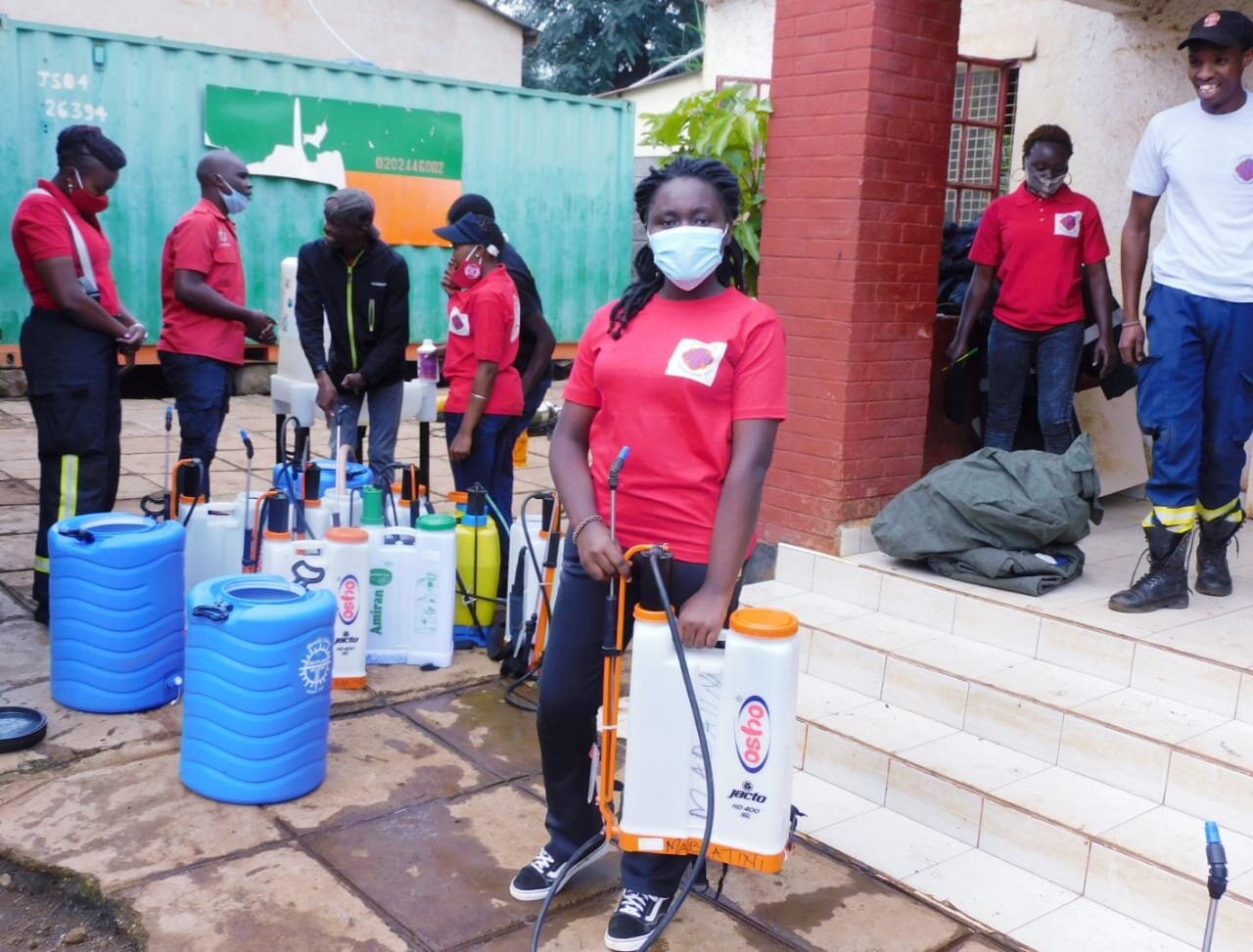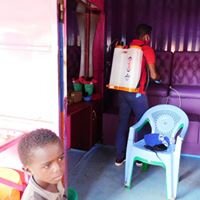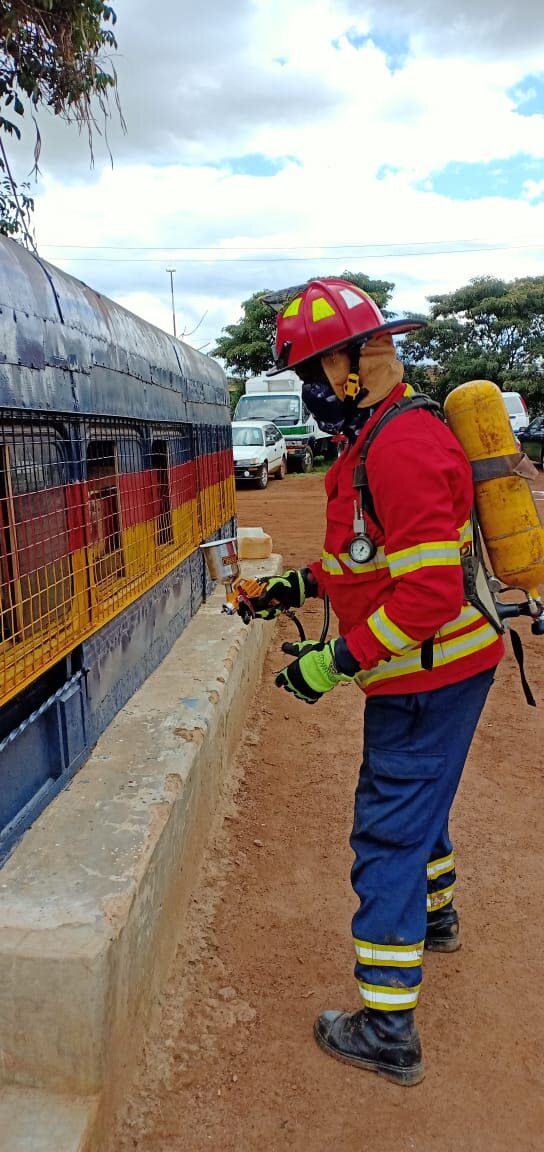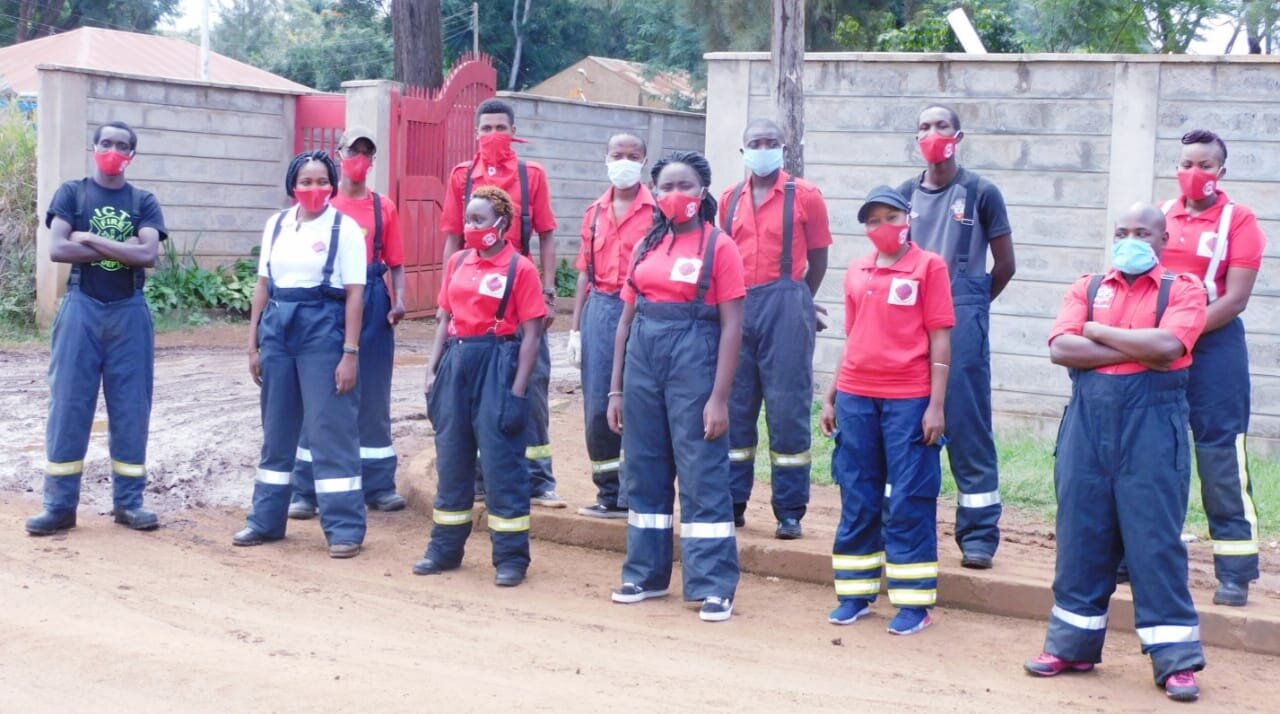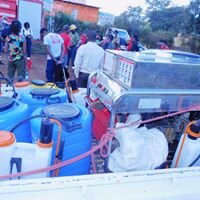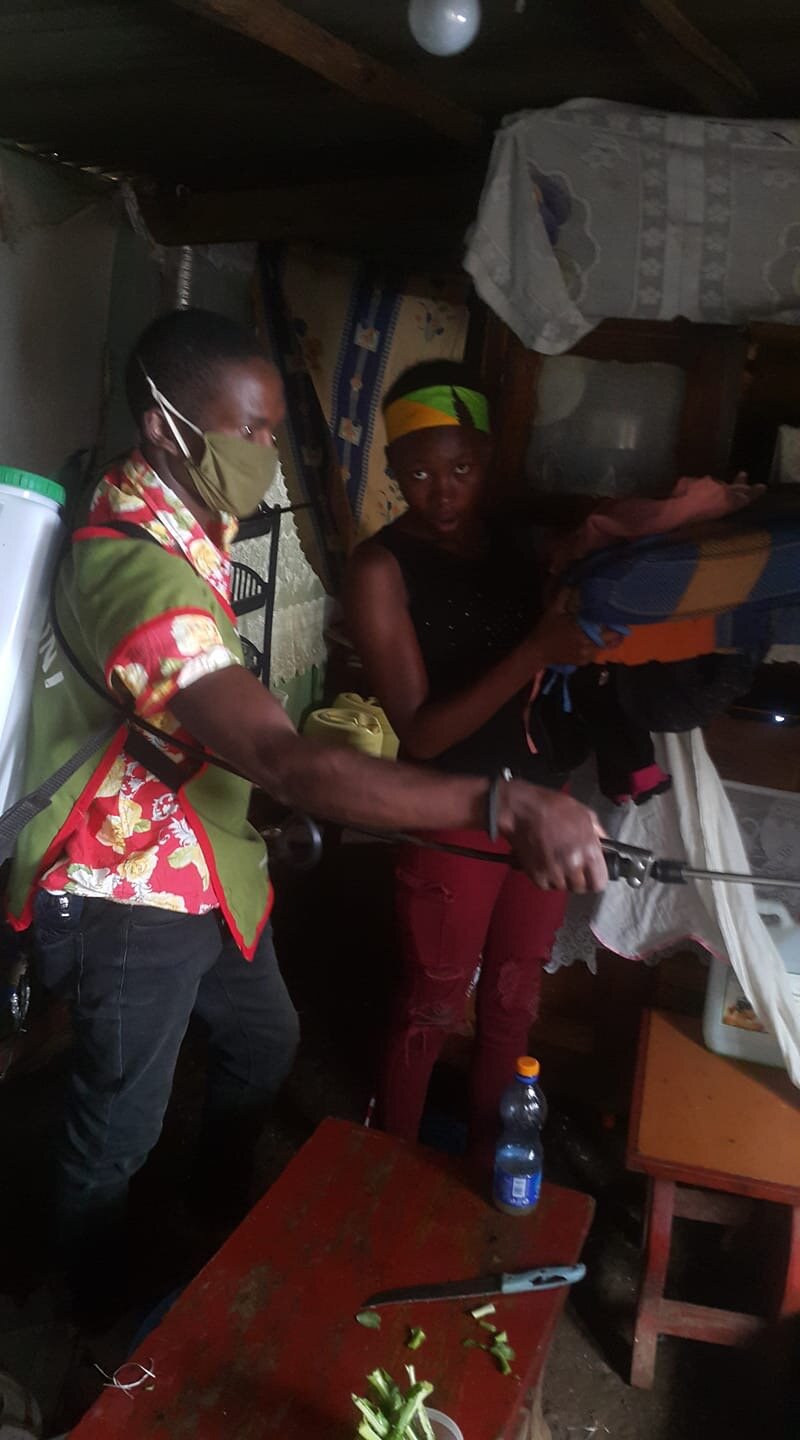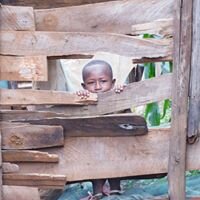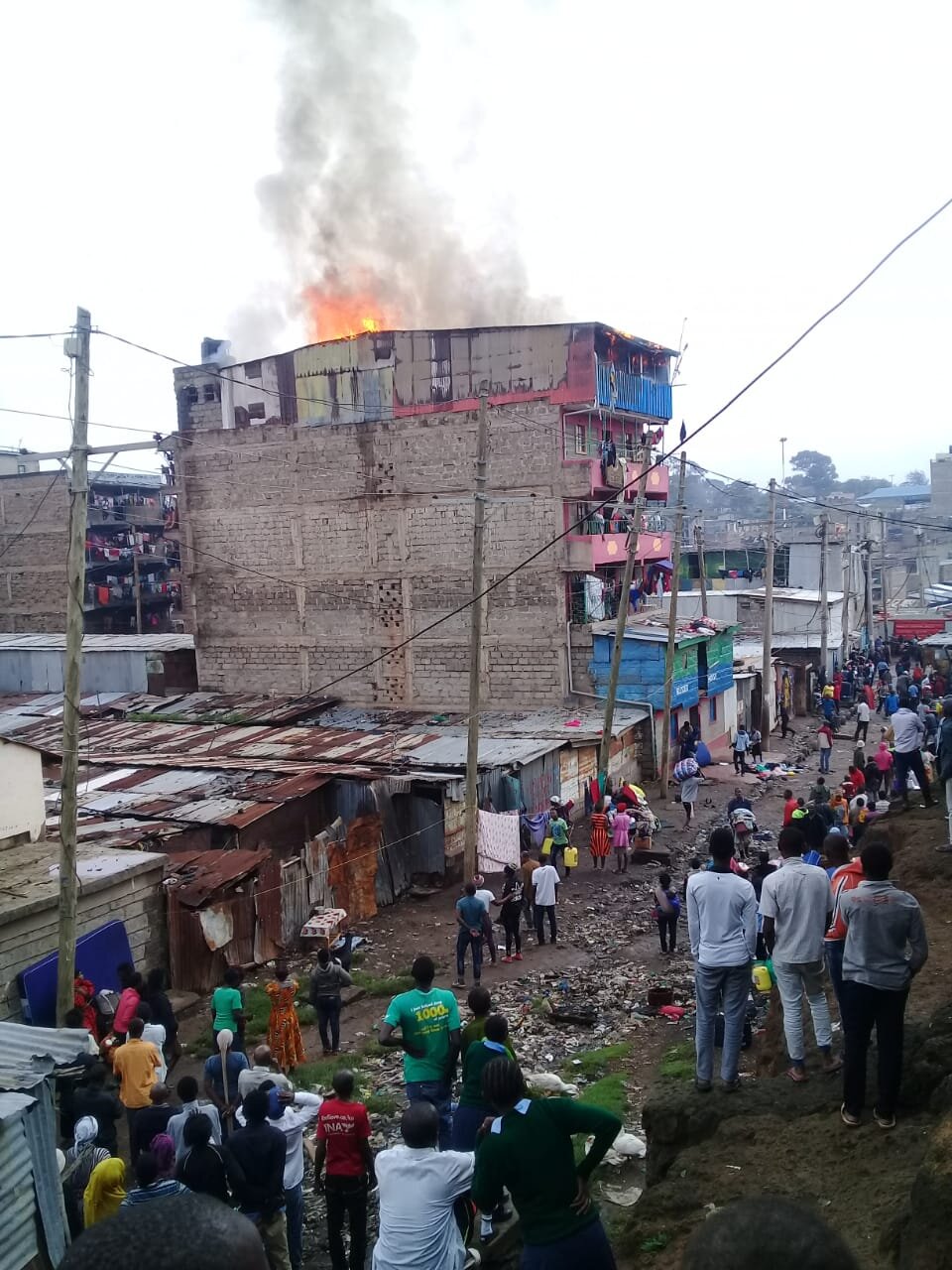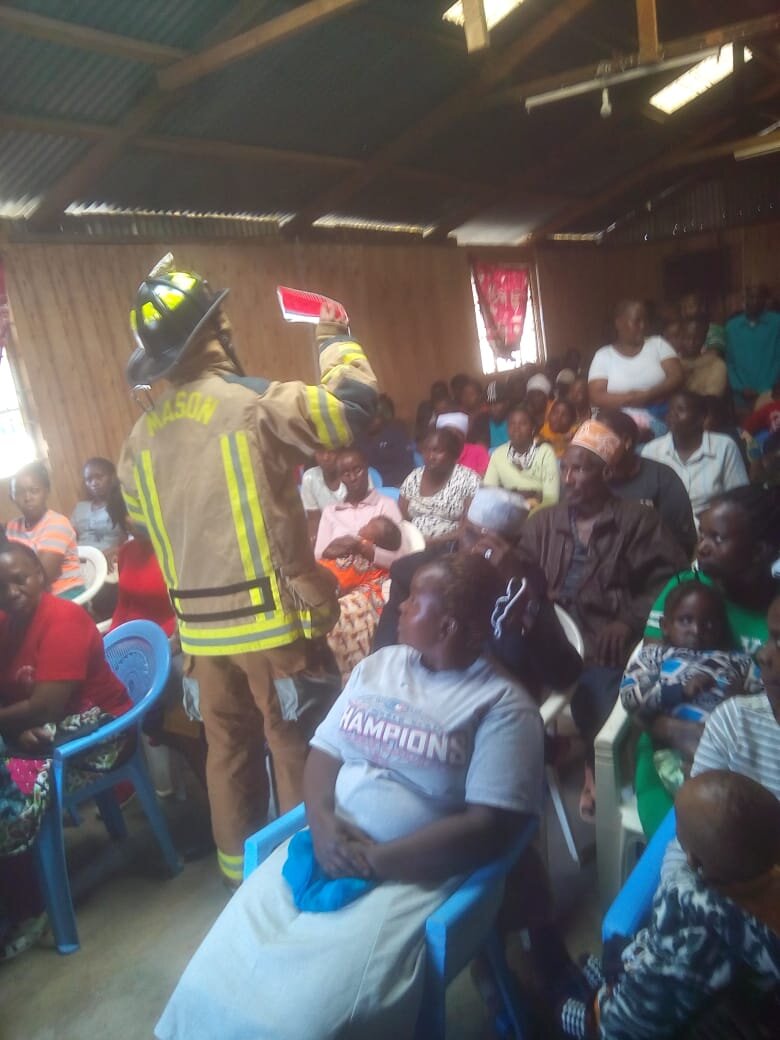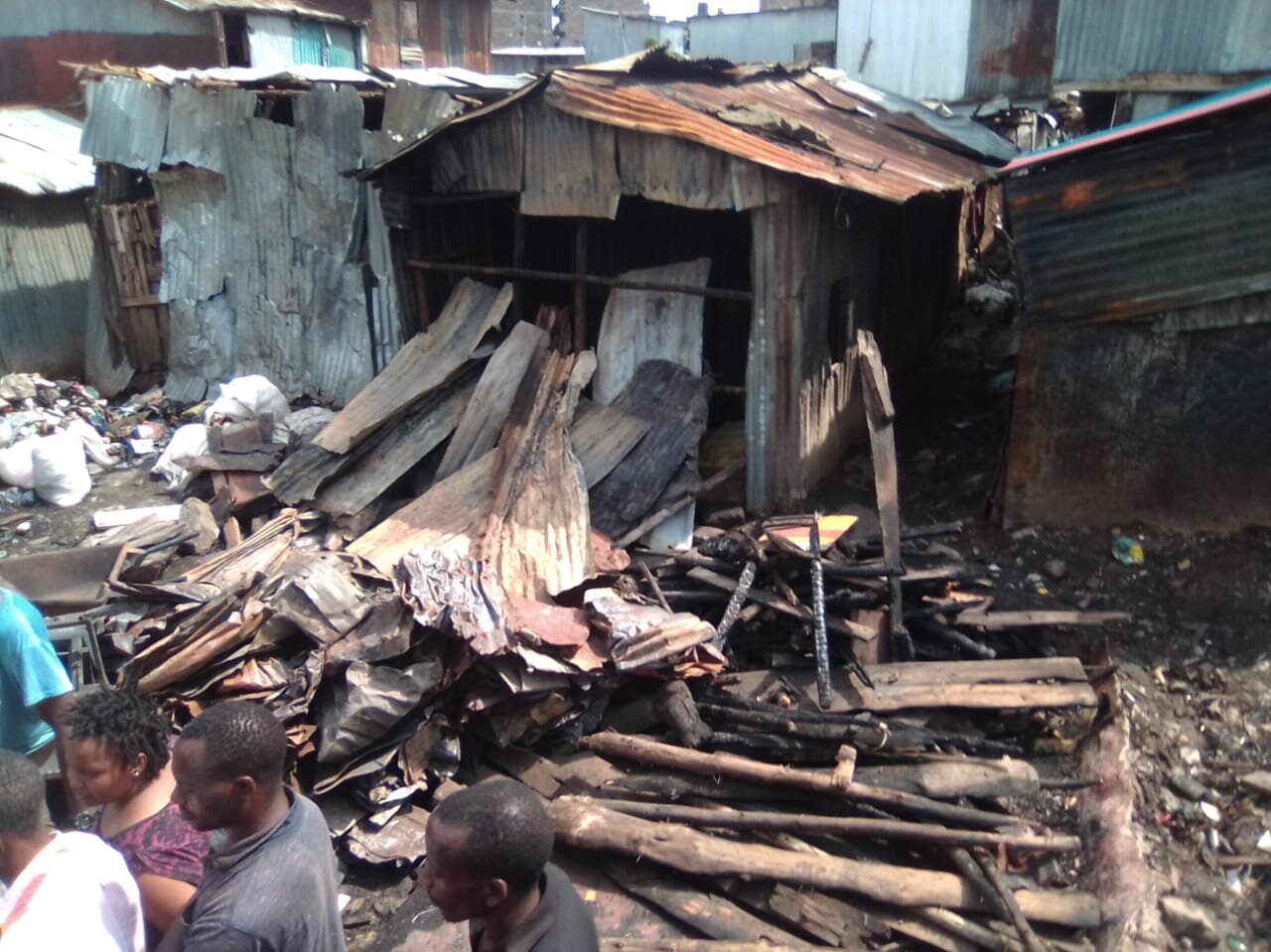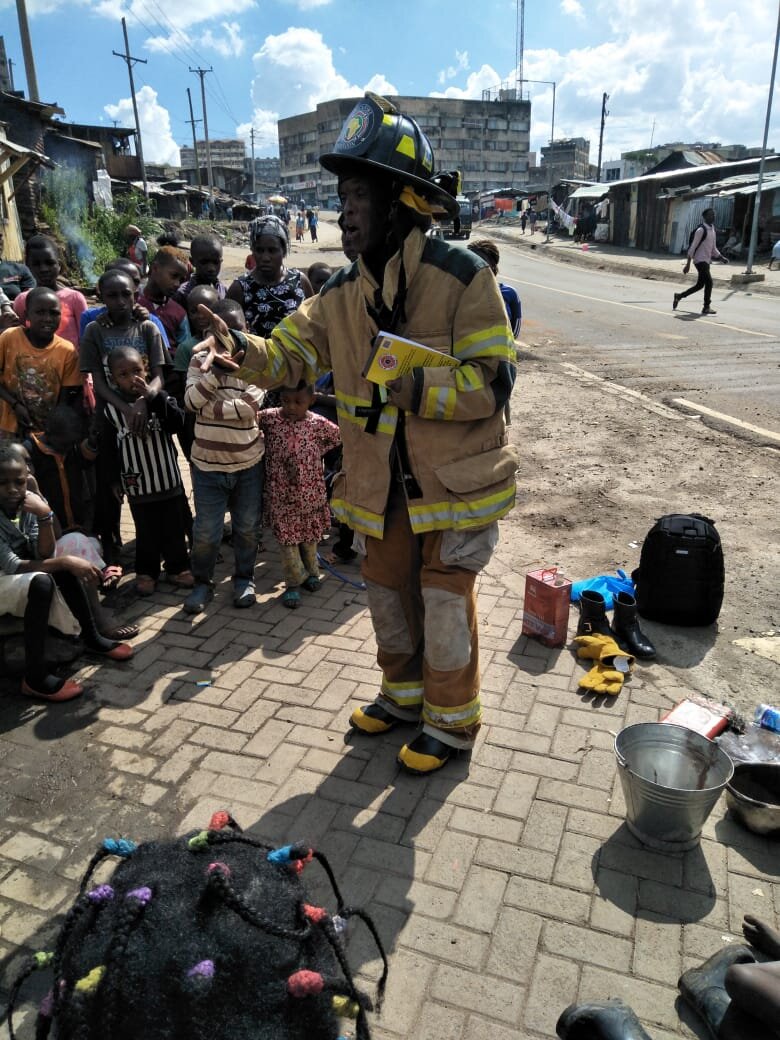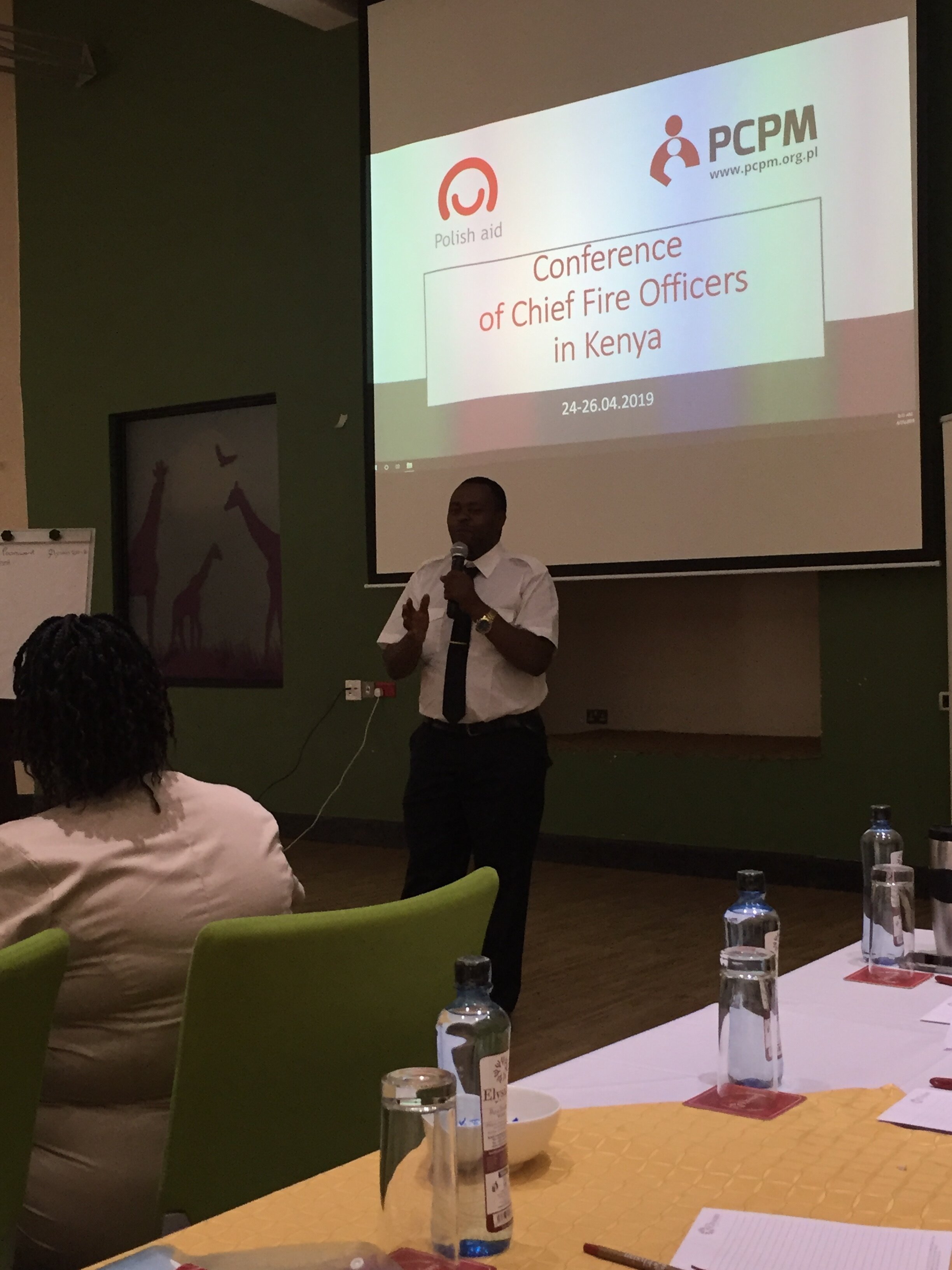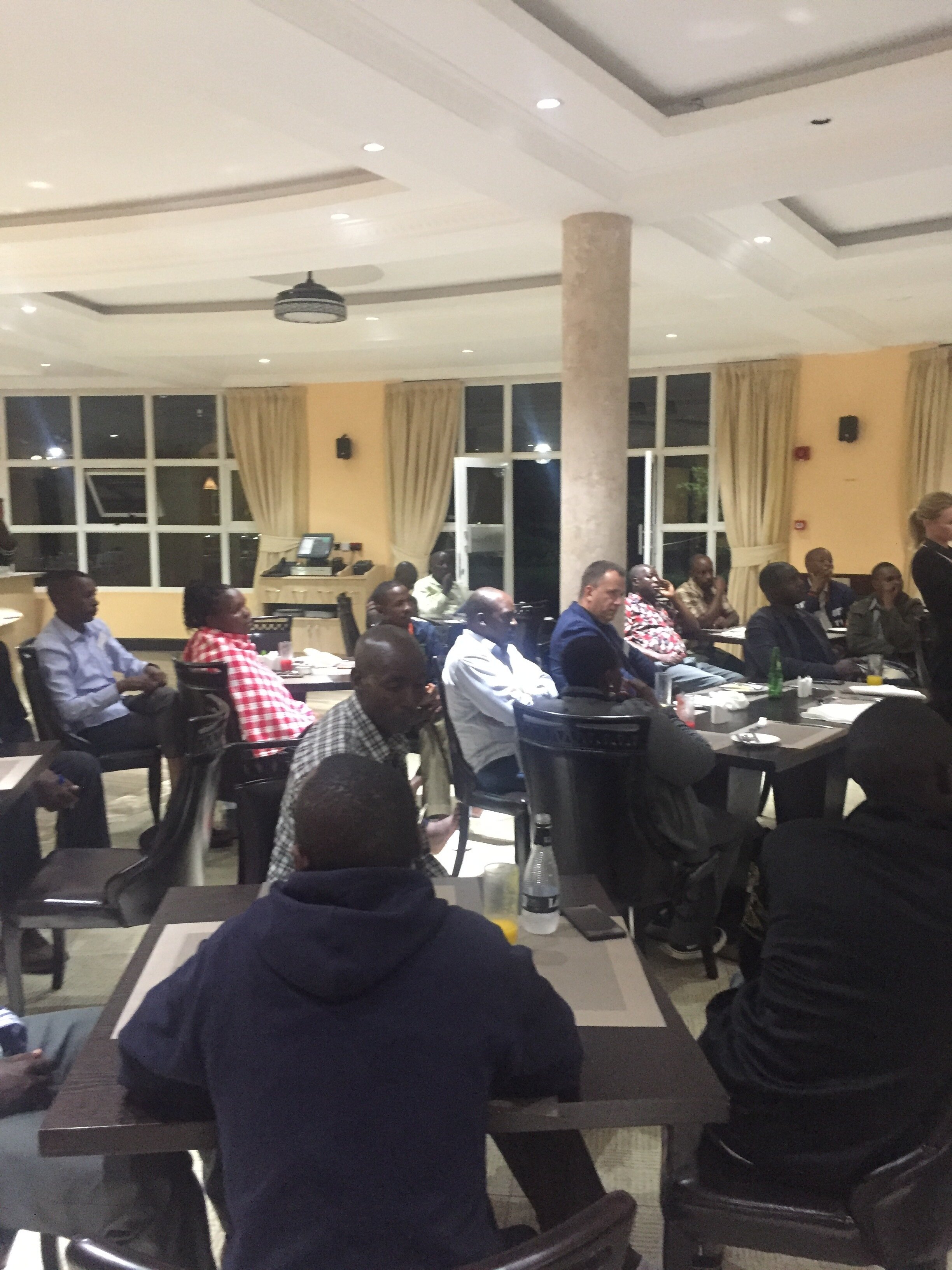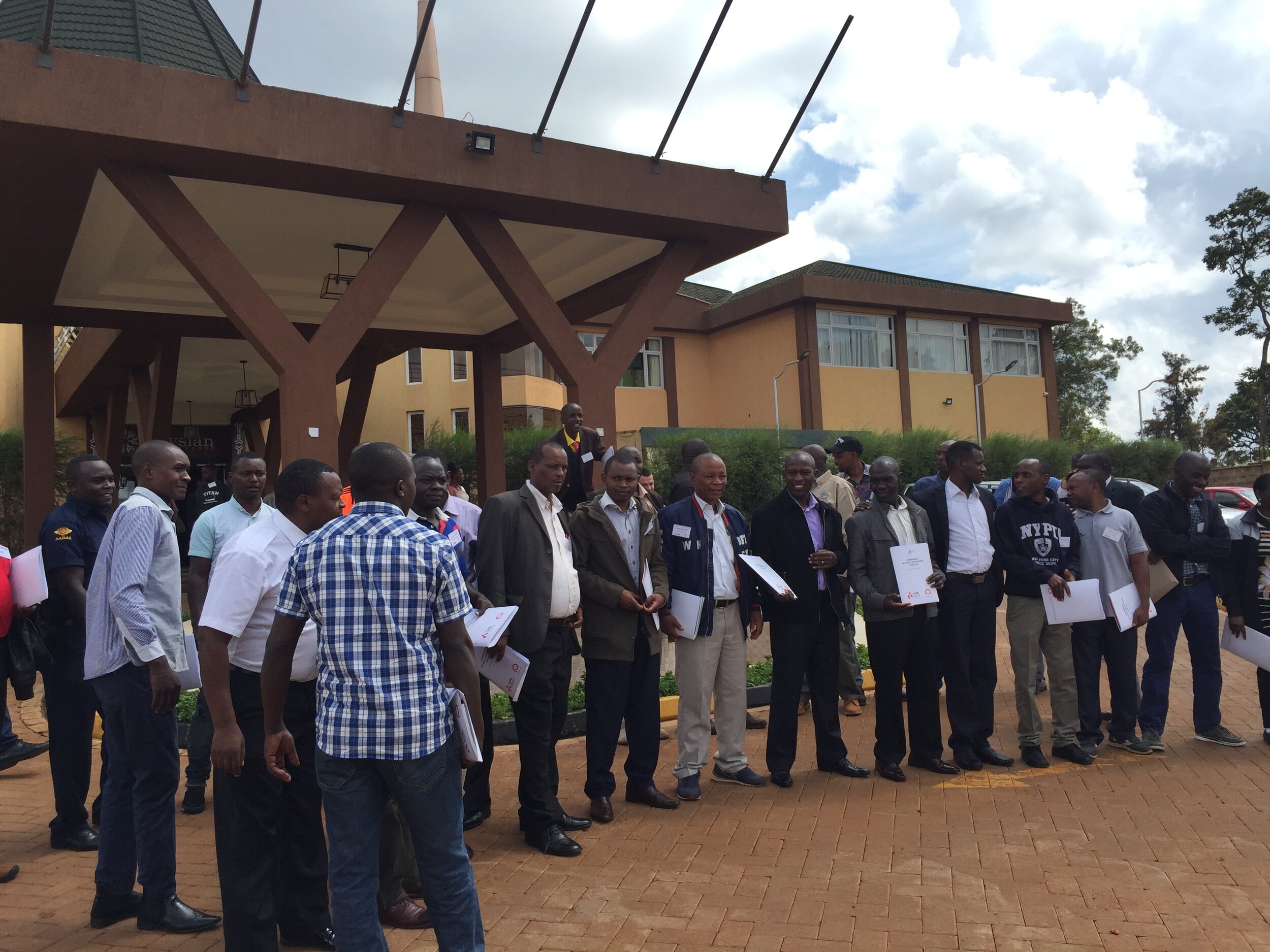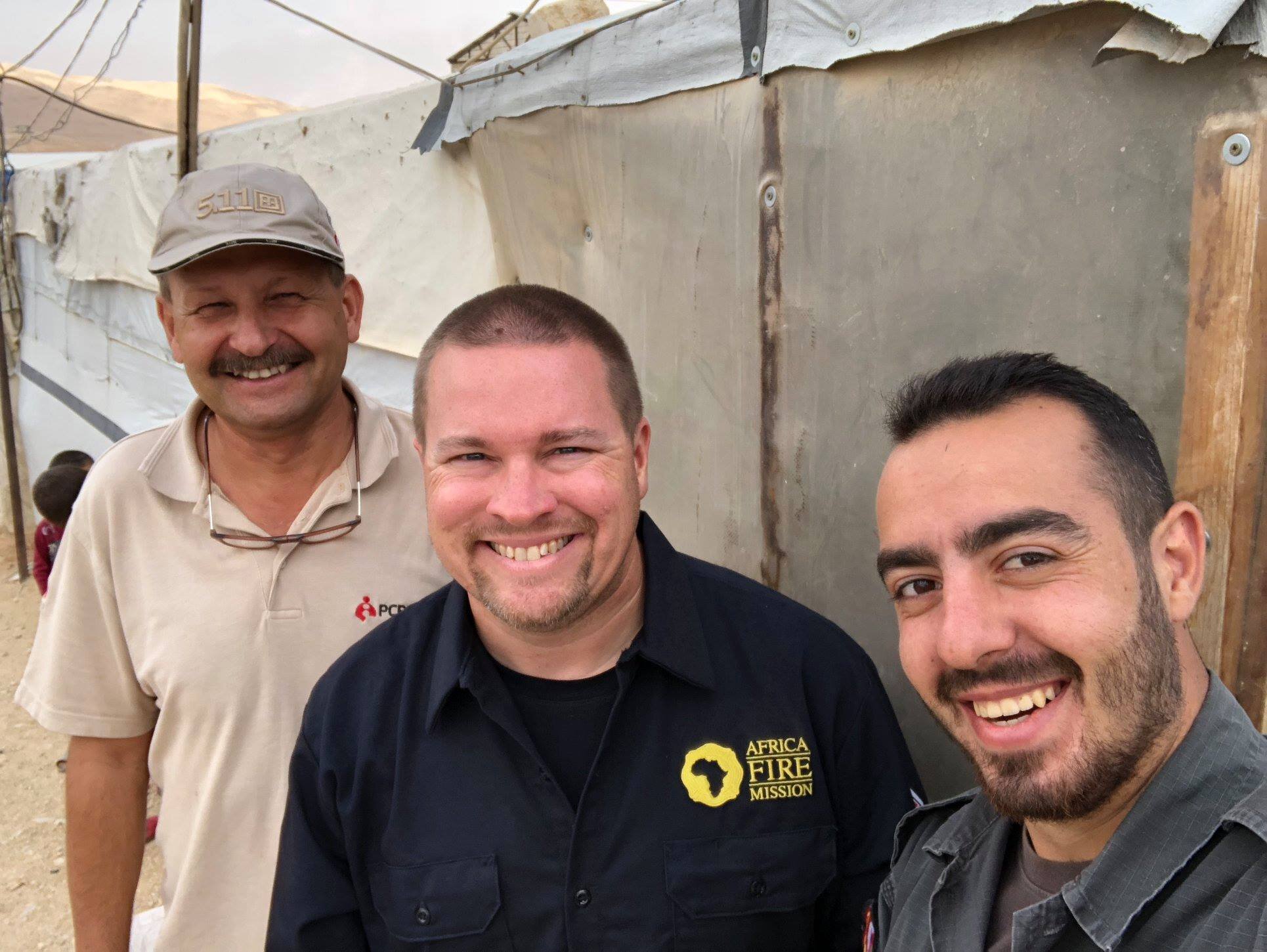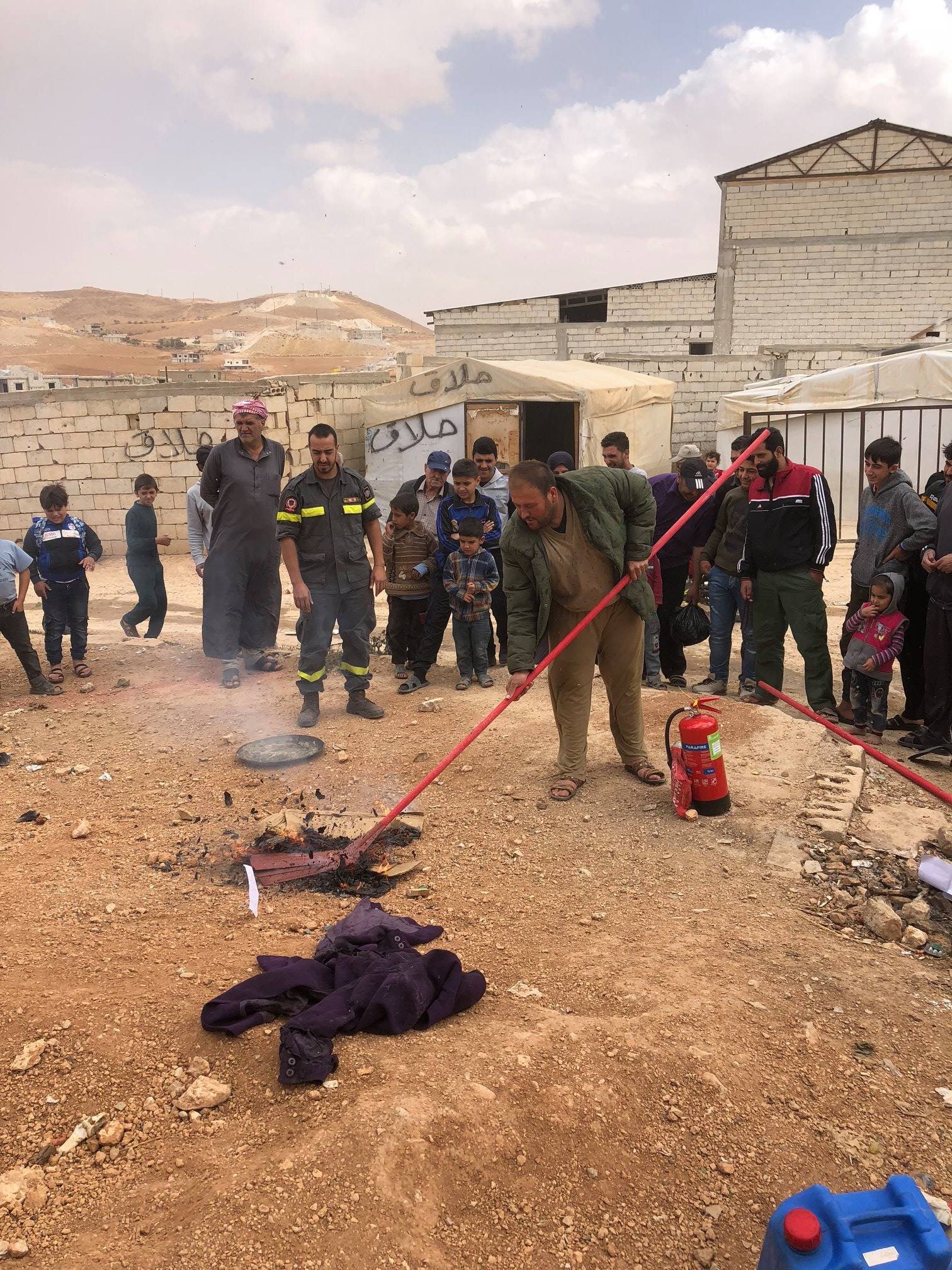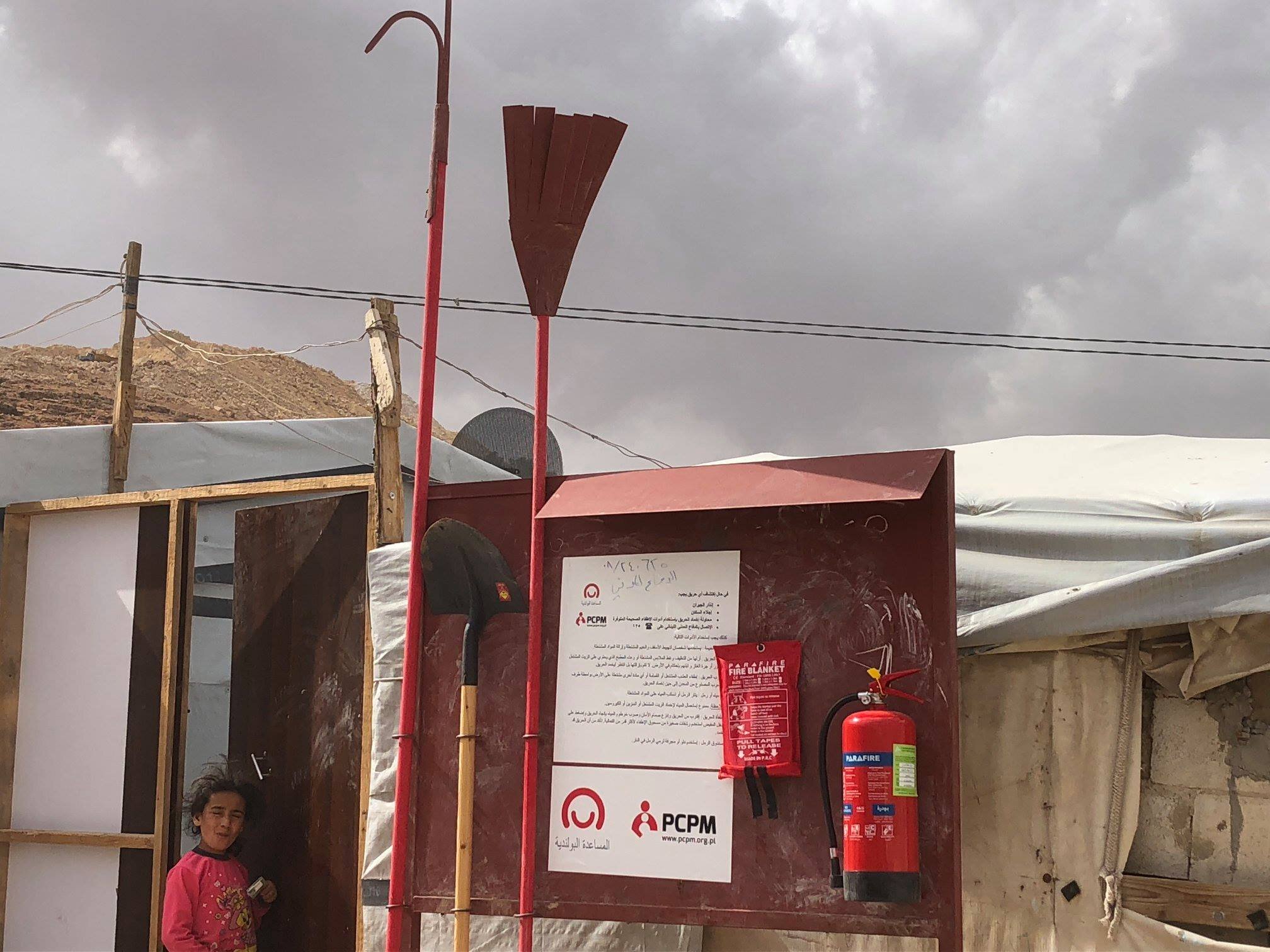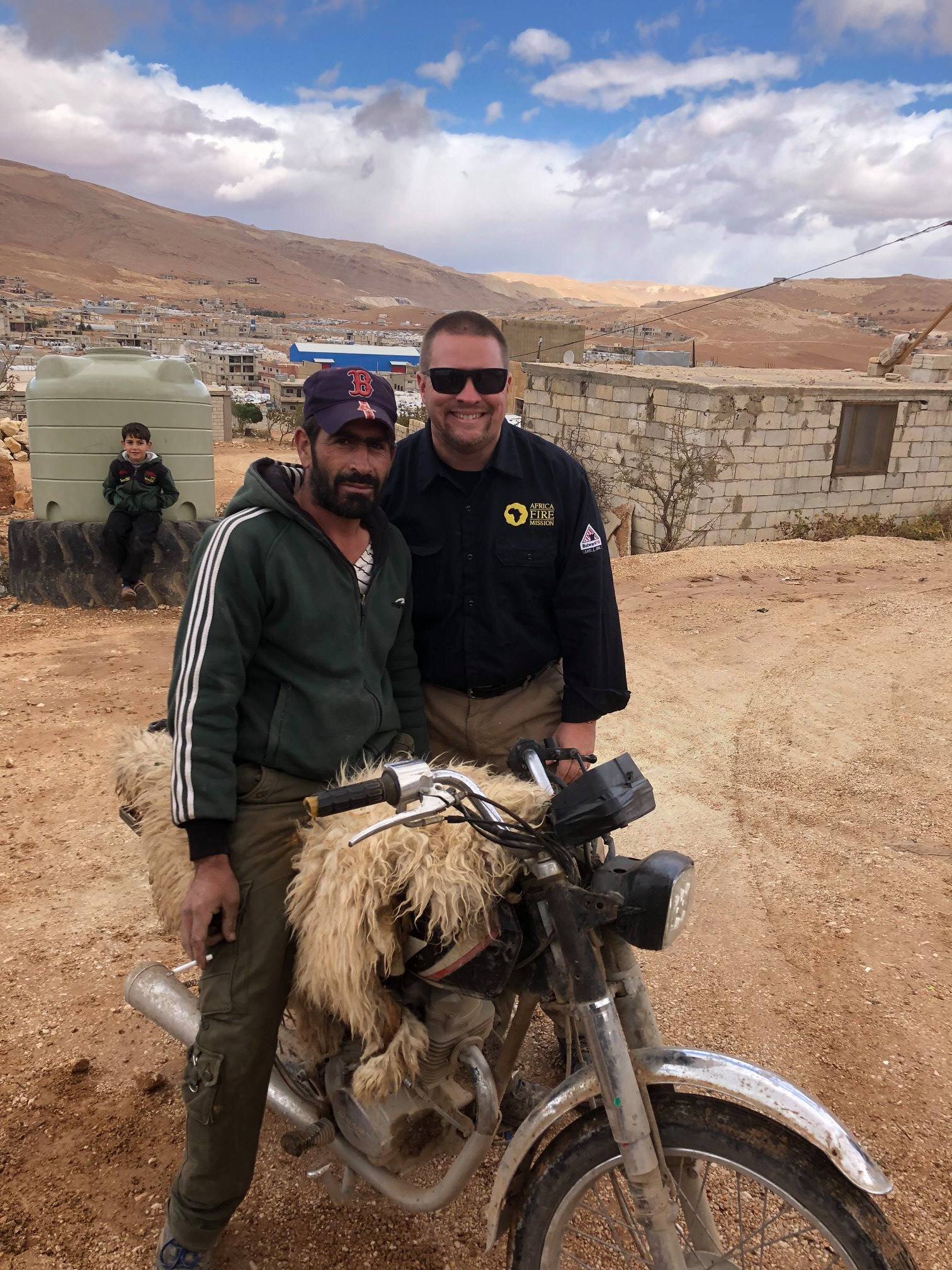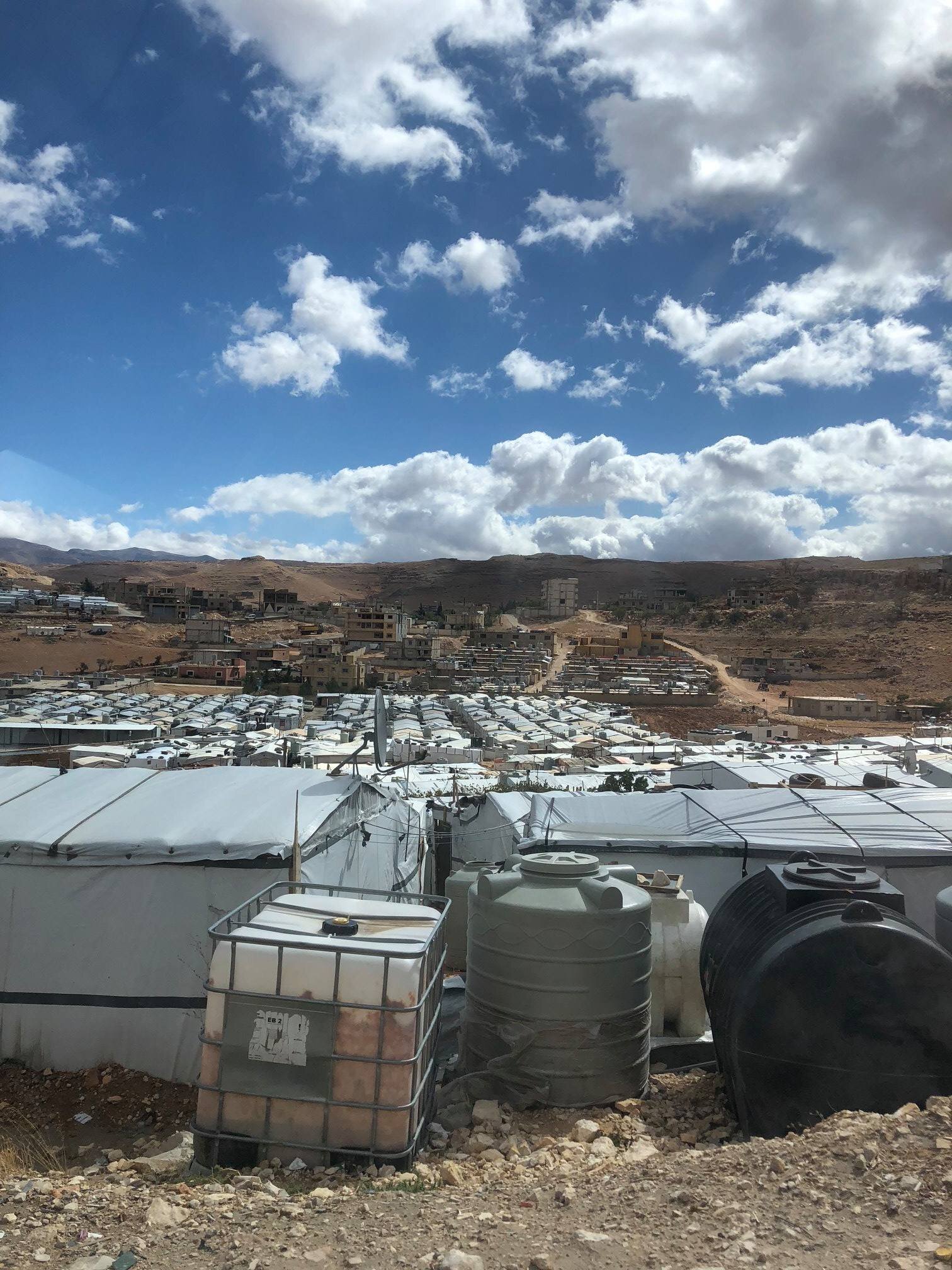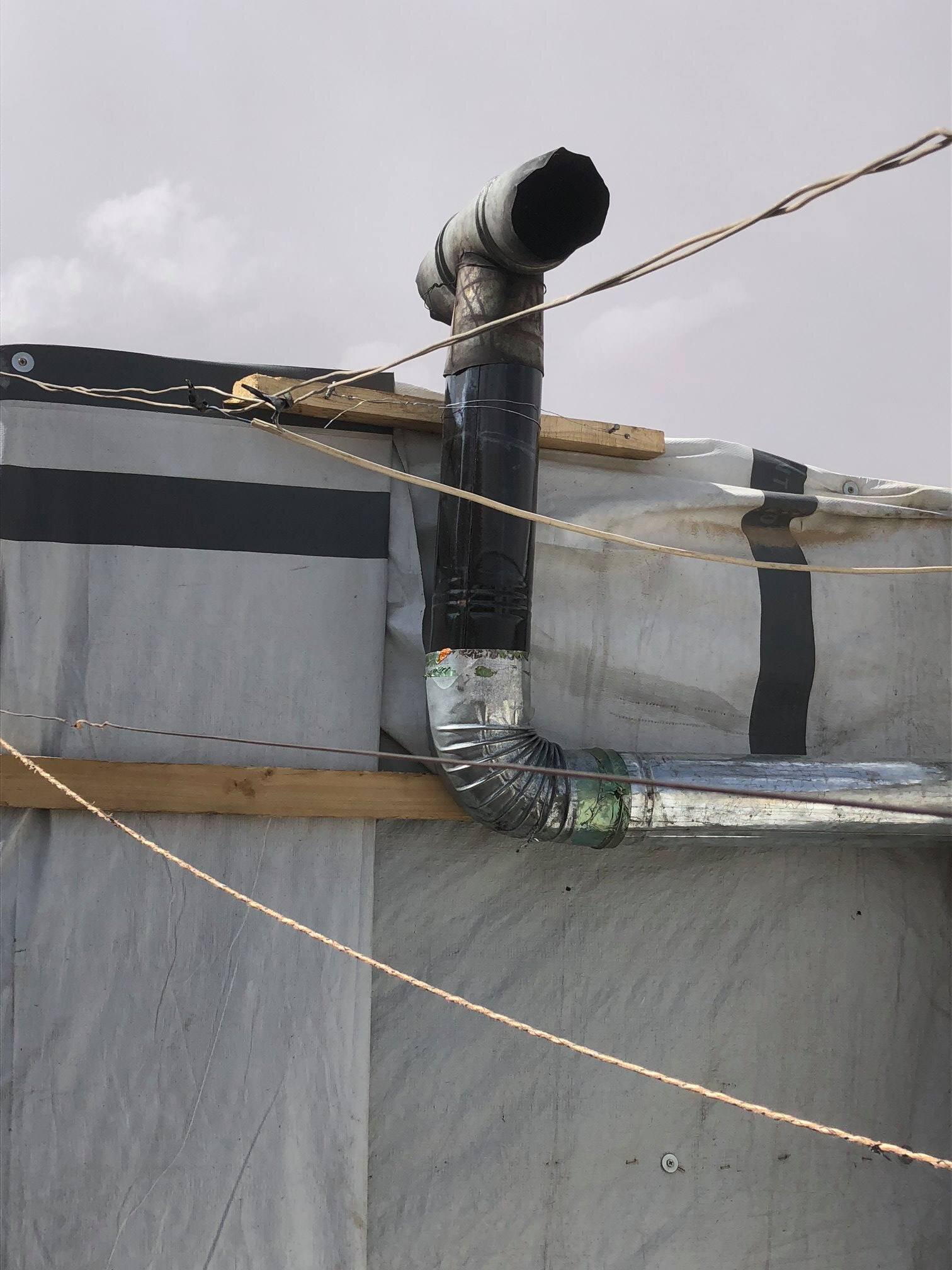Persisting taboos and stigma around matters concerning menstrual hygiene are prone in girls across the world. Girls are forced to stay at home for the days they are experiencing their flows because they are either not provided the sanitary towels or their parents cannot afford the basic items to continue normally with their daily chores. During the time they are going through their monthly flow, they are either locked in their rooms without any know how on how they should deal when nature calls, or told to stay in the house with no movement outside.
A group of older girls in Kenya East of Nairobi called “Marafiki Drive”, who have a heart of the girl child, and know girls who undergo such challenges, approached first responders, to come participate in distributing hygiene products to the girls. This was in line in celebration of the World Menstrual Hygiene day held every year on the 28th May 2020. On analyzing the opportunity, I thought this was a great opening for firefighters to reach out to the girls with knowledge of extinguishing fire, evacuating the house and calling the fire brigade for help when an emergency situation presents itself. This move was necessary considering the girls are usually home alone. During this time, the girl is in pain and may forget to turn off a stove or to put out a candle while they take a nap.
Firefighters and Emergency Medical Technicians from around Kenya rallied together to give in cash or kind donations to make a difference in girl child’s life. We managed to raise more than 10,000 Kenya Shillings ($100USD) and AFM and Missions of Hope International printed 200 flyers with emergency numbers with instructions on how to put out different types of fires inside the homes. Through that reach out program, we got to connect with 314 girls and distributed three packs of Sanitary towels to each girl containing twenty four pads that will last them for two months if they are having a normal flow.
As first responders, we are very grateful to have participated in the event and are looking forward to the next event in order to partner with communities and increase their quality of life and connection with the fire service.

